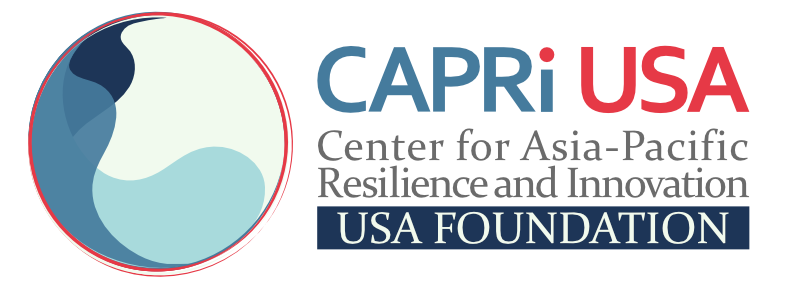
Taiwan has a history of battling pandemics. From the bubonic plague in the Japanese colonial era to the initial severe acute respiratory syndrome (SARS) outbreak in the 2000s, Taiwan’s central location has made it vulnerable to imported diseases. Despite a strong National Health Insurance scheme and generally high levels of governmental trust, the Taiwanese government struggled during the COVID-19 pandemic with vaccination: their locally developed vaccine, Medigen, was a target of foreign disinformation and local misinformation—likely due to its late and rapid development—while their efforts to procure foreign vaccines were stymied. Beyond this, the population engaged in strategic vaccine shopping, at least in part due to both disinformation and misinformation, creating further challenges for the government and the medical system. Despite these setbacks, the island has reached a 91.7% vaccination rate as of April 2024, although the rate of booster uptake is in decline. While the government succeeded during the pandemic in regular communication and investment in local scientists for vaccine development, it lacked targeted media campaigns surrounding vaccination and was unclear about vaccine rollouts when they started. Concerns about vaccine safety remained unaddressed, and non-Mandarin-speakers were largely left out of governmental communication. Policy recommendations include (1) investing in social science research before the next pandemic, (2) ensuring that information presented is both simple and available in multiple languages, (3) enforcing medical transparency in government communication, and (4) making use of credible third-party communicators to reduce perceived political bias in vaccine messaging.
In Japan, the public health system has evolved since World War II into a sophisticated framework offering comprehensive health services, including vaccination, supported by a universal health insurance system. This evolution has significantly contributed to Japan’s status among the nations with the highest longevity and health standards worldwide. However, vaccine hesitancy in Japan presents a complex challenge, influenced by historical, cultural, demographic, psychological, and economic factors. Despite a history of vaccination contributing to public health improvements, incidents of vaccine-related adverse effects and public mistrust toward public health authorities have occasionally led to hesitancy. This hesitancy was notably highlighted during the COVID-19 pandemic, despite the government’s efforts to promote vaccination through various policies and programs aimed at preventing and managing infectious diseases. The pandemic has underscored the importance of addressing vaccine hesitancy through a multifaceted approach, considering the intricate interplay of misinformation, societal values, and the media environment. Misinformation and distrust in vaccines have been propagated through a diverse array of media channels, posing significant public health challenges. Studies have indicated a correlation between social media use and vaccine hesitancy, highlighting the role of digital and media literacy in combating misinformation. The Japanese government’s vaccine communication strategies during the pandemic, emphasizing transparency, consistency, and engagement, have been critical in addressing hesitancy and misinformation. Lessons learned underscore the importance of targeted communication strategies, prioritizing evidence-based policies, and enhancing digital and media literacy to navigate future public health crises effectively. These strategies, while specific to Japan, offer valuable insights for global public health policy formulation and crisis management, advocating for an integrated approach to fostering trust and addressing vaccine hesitancy amidst the challenges posed by misinformation and the evolving media landscape.
Vietnam’s experience with vaccine hesitancy during the COVID-19 pandemic highlights a complex interplay of historical trust in vaccination, rapid policy responses, the emergence of highly transmissible variants, and the pervasive impact of misinformation. Historically, Vietnam has demonstrated robust public health responses, exemplified by its successful handling of previous infectious diseases and high routine immunization coverage rates. The country’s healthcare system has been significantly strengthened following the 1986 “Doi Moi” socioeconomic reforms, which paved the way for improvements in healthcare access and infrastructure. Despite these advances, the COVID-19 pandemic presented unique challenges. Initially, Vietnam experienced low levels of vaccine hesitancy, thanks to a well-established trust in vaccines stemming from the successful implementation of the National Expanded Program on Immunization established in 1981, resulting in a sharp decrease in vaccine-preventable diseases. However, the COVID-19 pandemic saw a rise in skepticism, driven by misinformation and disinformation, particularly through widespread internet and social media use. During this period, nearly 79% of the population was online, with a significant majority actively engaging on social media platforms, where misinformation thrived. The government’s response was multipronged, involving stringent legal and punitive measures against misinformation, partnership with tech companies to flag false information, and extensive public education campaigns. These efforts were conducted across various media, emphasizing the safety and efficacy of vaccines through trusted public figures and healthcare professionals. Nevertheless, challenges persisted during high-stress periods, such as the Delta variant outbreak, when public trust wavered due to perceived lapses in transparency and communication. This summary underscores the necessity of continuous public education, robust data transparency, and the leveraging of digital platforms to counteract misinformation effectively, ensuring public trust and compliance with health policies during health crises.
This project is supported by CAPRI USA.

Taiwan has a history of battling pandemics. From the bubonic plague in the Japanese colonial era to the initial severe acute respiratory syndrome (SARS) outbreak in the 2000s, Taiwan’s central location has made it vulnerable to imported diseases. Despite a strong National Health Insurance scheme and generally high levels of governmental trust, the Taiwanese government struggled during the COVID-19 pandemic with vaccination: their locally developed vaccine, Medigen, was a target of foreign disinformation and local misinformation—likely due to its late and rapid development—while their efforts to procure foreign vaccines were stymied. Beyond this, the population engaged in strategic vaccine shopping, at least in part due to both disinformation and misinformation, creating further challenges for the government and the medical system. Despite these setbacks, the island has reached a 91.7% vaccination rate as of April 2024, although the rate of booster uptake is in decline. While the government succeeded during the pandemic in regular communication and investment in local scientists for vaccine development, it lacked targeted media campaigns surrounding vaccination and was unclear about vaccine rollouts when they started. Concerns about vaccine safety remained unaddressed, and non-Mandarin-speakers were largely left out of governmental communication. Policy recommendations include (1) investing in social science research before the next pandemic, (2) ensuring that information presented is both simple and available in multiple languages, (3) enforcing medical transparency in government communication, and (4) making use of credible third-party communicators to reduce perceived political bias in vaccine messaging.
In Japan, the public health system has evolved since World War II into a sophisticated framework offering comprehensive health services, including vaccination, supported by a universal health insurance system. This evolution has significantly contributed to Japan’s status among the nations with the highest longevity and health standards worldwide. However, vaccine hesitancy in Japan presents a complex challenge, influenced by historical, cultural, demographic, psychological, and economic factors. Despite a history of vaccination contributing to public health improvements, incidents of vaccine-related adverse effects and public mistrust toward public health authorities have occasionally led to hesitancy. This hesitancy was notably highlighted during the COVID-19 pandemic, despite the government’s efforts to promote vaccination through various policies and programs aimed at preventing and managing infectious diseases. The pandemic has underscored the importance of addressing vaccine hesitancy through a multifaceted approach, considering the intricate interplay of misinformation, societal values, and the media environment. Misinformation and distrust in vaccines have been propagated through a diverse array of media channels, posing significant public health challenges. Studies have indicated a correlation between social media use and vaccine hesitancy, highlighting the role of digital and media literacy in combating misinformation. The Japanese government’s vaccine communication strategies during the pandemic, emphasizing transparency, consistency, and engagement, have been critical in addressing hesitancy and misinformation. Lessons learned underscore the importance of targeted communication strategies, prioritizing evidence-based policies, and enhancing digital and media literacy to navigate future public health crises effectively. These strategies, while specific to Japan, offer valuable insights for global public health policy formulation and crisis management, advocating for an integrated approach to fostering trust and addressing vaccine hesitancy amidst the challenges posed by misinformation and the evolving media landscape.
Vietnam’s experience with vaccine hesitancy during the COVID-19 pandemic highlights a complex interplay of historical trust in vaccination, rapid policy responses, the emergence of highly transmissible variants, and the pervasive impact of misinformation. Historically, Vietnam has demonstrated robust public health responses, exemplified by its successful handling of previous infectious diseases and high routine immunization coverage rates. The country’s healthcare system has been significantly strengthened following the 1986 “Doi Moi” socioeconomic reforms, which paved the way for improvements in healthcare access and infrastructure. Despite these advances, the COVID-19 pandemic presented unique challenges. Initially, Vietnam experienced low levels of vaccine hesitancy, thanks to a well-established trust in vaccines stemming from the successful implementation of the National Expanded Program on Immunization established in 1981, resulting in a sharp decrease in vaccine-preventable diseases. However, the COVID-19 pandemic saw a rise in skepticism, driven by misinformation and disinformation, particularly through widespread internet and social media use. During this period, nearly 79% of the population was online, with a significant majority actively engaging on social media platforms, where misinformation thrived. The government’s response was multipronged, involving stringent legal and punitive measures against misinformation, partnership with tech companies to flag false information, and extensive public education campaigns. These efforts were conducted across various media, emphasizing the safety and efficacy of vaccines through trusted public figures and healthcare professionals. Nevertheless, challenges persisted during high-stress periods, such as the Delta variant outbreak, when public trust wavered due to perceived lapses in transparency and communication. This summary underscores the necessity of continuous public education, robust data transparency, and the leveraging of digital platforms to counteract misinformation effectively, ensuring public trust and compliance with health policies during health crises.
This project is supported by CAPRI USA.
